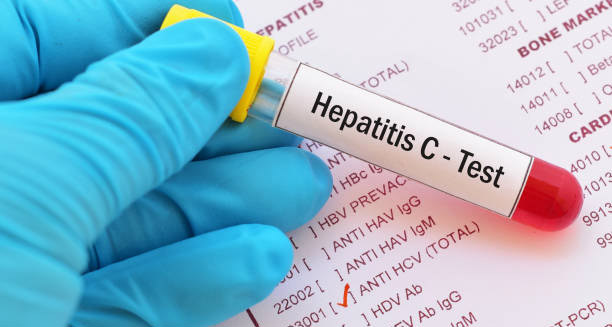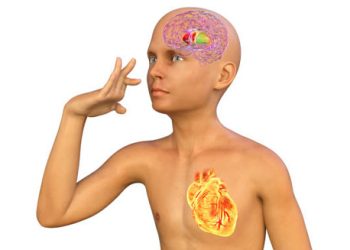The diagnosis of hepatitis C is a multi-step process that begins with identifying individuals at risk of exposure, followed by laboratory testing to confirm the presence of the virus and assess the degree of liver involvement.
Since many people with hepatitis C do not show symptoms for years, early detection is vital. Without timely diagnosis, serious problems like cirrhosis or liver cancer may occur. Catching the virus early also allows for effective treatment. Today’s antiviral medicines can cure more than 95% of cases.
Who Should Get Tested for Hepatitis C?
Because symptoms often don’t appear, testing focuses on people with known risk factors. You should get tested if you:
- Have ever injected drugs, even once
- Received a blood transfusion or organ transplant before 1992 in the UK
- Are on long-term dialysis
- Are living with HIV
- Were born to a mother with hepatitis C
- Have a sexual partner with the virus
- Have abnormal liver enzyme levels without explanation
- Had tattoos or piercings in non-regulated settings
- Were in prison or have a history of incarceration
- Work in healthcare and had a needlestick injury
In many countries, people aged 18–79 are now advised to get tested at least once. Pregnant women are also screened during routine care.
This approach helps identify more cases early—especially in those with other infections like Hepatitis A.
First Step: Antibody Screening Test
The first test for hepatitis C checks for antibodies (anti-HCV) in your blood. A positive result means you’ve been exposed to the virus at some point.
However, this test can’t tell if the infection is active or has cleared. You could also get a rare false-positive. So, a second test is always needed to confirm.
Confirming Infection: HCV RNA (PCR Test)
If the antibody test is positive, a PCR test comes next. This checks for hepatitis C RNA (the virus’s genetic material) in the blood.
This test:
- Confirms whether the virus is still active
- Measures how much virus is present (viral load)
- Helps guide your treatment plan
A positive PCR result means active infection. A negative result after a positive antibody test means your body likely cleared the virus naturally.
Understanding the Virus Type: HCV Genotyping
After confirming an active infection, a genotyping test may be done. This finds out which strain of the hepatitis C virus you have.
There are seven main types (genotypes):
- Genotype 1: Most common in Europe and North America
- Genotypes 2 and 3: Found worldwide
- Genotype 4: Common in Africa and the Middle East
- Genotypes 5–7: Less common and found in certain regions
New treatments work well across most types, but genotyping can still help decide treatment duration or drug choice, especially under specific national guidelines.
Liver Function Tests to Check for Damage
Doctors also run blood tests to see how well your liver is working. These tests include:
- ALT and AST: Enzymes that rise when the liver is inflamed
- Bilirubin: High levels suggest more serious liver damage
- ALP and GGT: Raised in bile duct or alcohol-related problems
- Albumin: A protein made by the liver; low levels may mean poor liver function
- Prothrombin time/INR: Measures how well your blood clots
These results help doctors check if liver damage has already begun—sometimes even in people who feel fine or only had Hepatitis A in the past.
Hepatitis A History and Liver Damage in Hepatitis C
After confirming infection, doctors need to assess how much liver damage has occurred. This helps determine how soon treatment should begin.
There are three main ways to do this:
FibroScan (Transient Elastography)
This painless, non-invasive test uses sound waves to check how stiff the liver is. Stiffness usually means scarring or cirrhosis. It’s quick and now widely used instead of liver biopsies.
Liver Biopsy
In some cases, a small piece of the liver is removed and examined under a microscope. This used to be the gold standard, but it’s now less common. Biopsies are used when other tests give unclear results.
Blood Test Panels
Simple blood-based tests like APRI or FIB-4 scores use enzyme and platelet counts to estimate liver scarring. These are especially useful in clinics with fewer resources.
Other Blood Tests for Related Conditions
Doctors also screen for other infections or problems that may affect treatment.
Tests may include:
- HIV testing: Hepatitis C and HIV together worsen liver disease
- Hepatitis B (HBsAg): Co-infection may change treatment
- Autoimmune markers: If the liver looks unusually inflamed
- Iron and copper levels: To check for inherited conditions like Wilson’s disease or haemochromatosis
- Full blood count and kidney tests: To check overall health before starting treatment
Women of childbearing age may also be tested for pregnancy. Some treatments for hepatitis C—and Hepatitis A if co-infected—are unsafe during pregnancy.
Imaging Tests to Spot Liver Cancer
If liver damage is advanced, doctors use imaging to look for cancer or other liver problems.
Tests include:
- Ultrasound: The first step to check for liver cancer or abnormal structure
- CT or MRI scans: Used when the ultrasound finds something unclear or suspicious
- Doppler ultrasound: Looks at blood flow in the liver, especially if portal hypertension is suspected
People with cirrhosis need an ultrasound every six months. This helps catch liver cancer early, when it is still treatable.
Rapid Tests in the Field
In some areas, especially those with limited healthcare access, rapid tests can help screen large groups. These tests use a finger-prick or oral swab and show results in minutes.
While they can’t confirm infection, they are a quick way to spot people who need further testing—especially in places where Hepatitis A outbreaks are common.
In Summary
Diagnosing hepatitis C starts with an antibody test and is confirmed by checking for viral RNA. After that, doctors assess the virus type, liver health, and whether any other infections or conditions are present. This full picture guides treatment choices and helps prevent serious problems.
Since many people with hepatitis C don’t feel sick until their liver is badly damaged, early testing—especially in those who’ve had Hepatitis A or other risks—is key to starting a cure before it’s too late.


